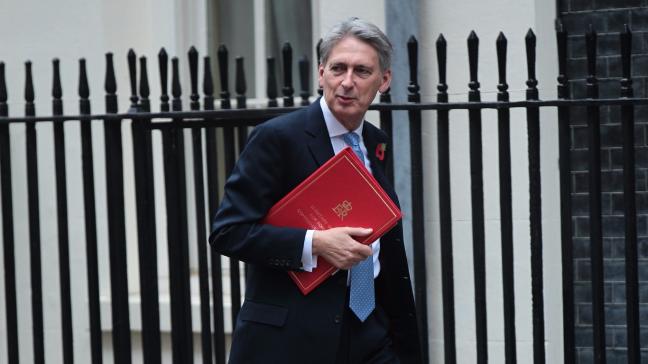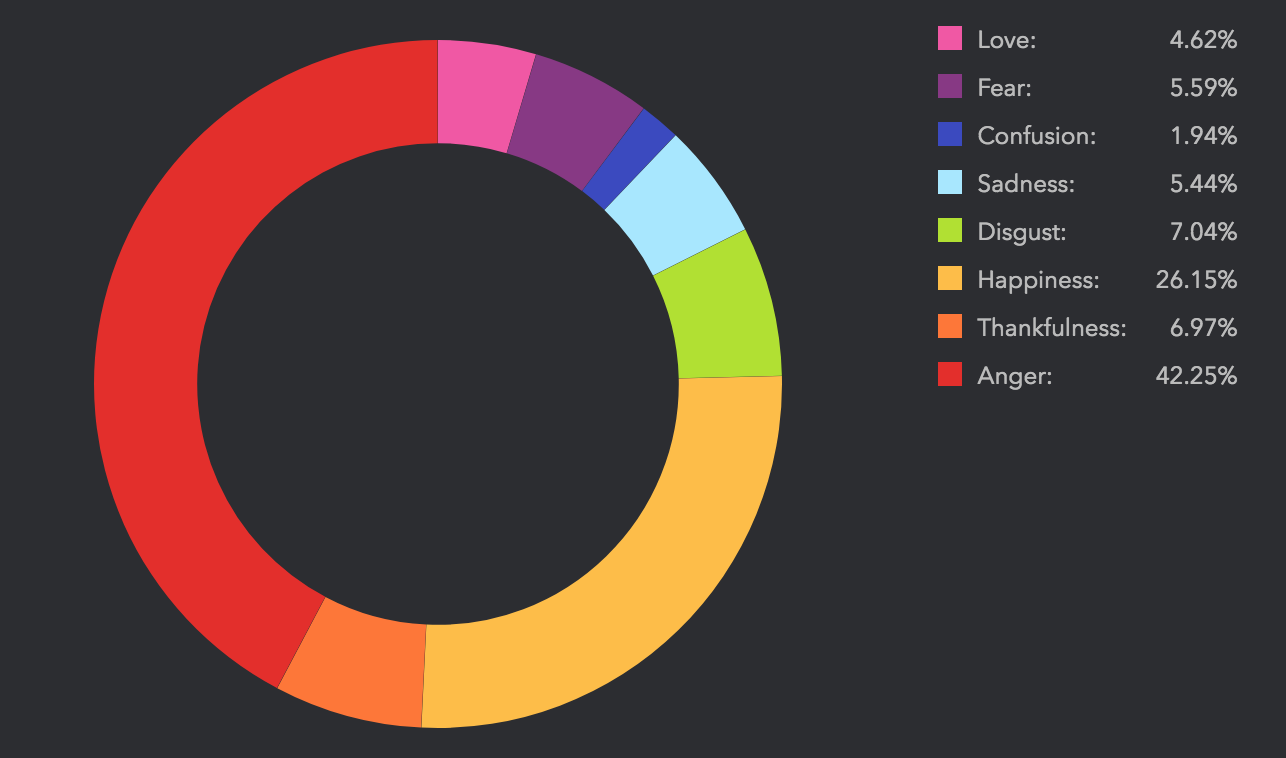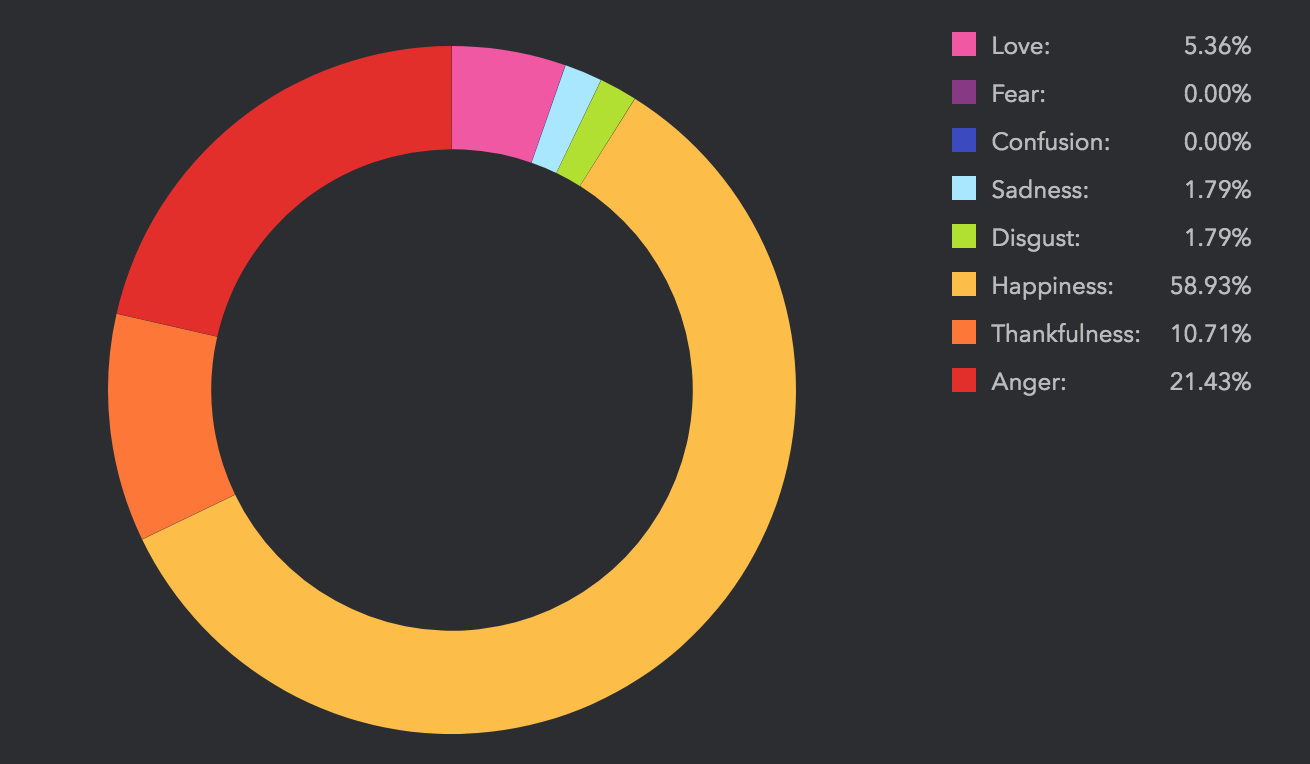Chancellor Philip Hammond yesterday announced the 2017 Budget in the Houses of Parliament, outlining government plans for spending and borrowing for the next year and into the future. Alongside the ending of stamp duty for first time buyers and the availability of a 26-30 railcard, the Chancellor announced an intent to build more houses and invest more in electic cars and the technology associated with them in an attempt to create a modern Britain for a post-Brexit world.

We took a look at how the public reacted to the budget on social media, with supporters of all the political parties weighing in to offer their judgement on whether Mr Hammond and the Conservative government had offered an enticing enough deal for the British public. 41.2% of users identified as Conservatives, 43.6% of users identified as Labour supporters and 9.7% of users indicated that they were Liberal Democrats. Those figures match up pretty closely to current polling averages, suggesting Twitter users align reasonably closely idealogically with the national electorate.
Sentiment was split among users, with 16% reacting positively to the budget and 22% reacting negatively. The top 3 trending emotions underlined that split, with the first 2 trending emotions being “angry” and “jeering” and the third being “thanks”. The largest negative spike came at 10.30am, as users were predicting what could come and Green party co-leader Caroline Lucas and Labour leader Jeremy Corbyn both criticised the record of the Conservative government in the past and cast doubt on their ability to turn it around in the future.
The context for #Budget2017:
➡️ Departmental cuts of up to 40%
➡️ 60% of brits in poverty in working families
➡️ £14bn cuts to working-age welfare
➡️Tax breaks for corporations and top 15% of earnersOnly an austerity ending budget can solve this country's crises.
— Caroline Lucas (@CarolineLucas) November 22, 2017
"Far from being fit for the future, the Conservative Party is on its knees with only one story to tell – more austerity for years to come – while Labour stands ready to take over and form a government for the many, not the few" – writes @Jon_Trickett.https://t.co/EvXsuO1nwb
— Jeremy Corbyn (@jeremycorbyn) November 21, 2017
There was a long, sustained period of negative sentiment between 1.50pm and 3pm, as the budget was dissected in more detail and arguments began about the benefits and costs of the announcements. The highest positive spike came at 11.30am after the official Labour account tweeted a mocking “Westminster Group Whatsapp” post, with the second highest positive spike coming as a result of Mr Hammond’s pledges to invest in infrastructure and the NHS across the country.
Meanwhile, in the House of Commons group chat…#Budget2017 pic.twitter.com/oW4GuRaAWn
— The Labour Party (@UKLabour) November 22, 2017
“…we’ll fund the replacement of the 40-year-old rolling stock on the Tyne and Wear Metro” #Budget2017 pic.twitter.com/3uBhITxjYq
— HM Treasury (@hmtreasury) November 22, 2017
Emotional reactions were also split, with some users angry that the budget didn’t do more to end austerity and address societal issues, whilst others were happy that the Chancellor pledged to do more to solve the housing crisis and had offered incentives to make travelling cheaper and greener.

Anger was by far the most expressed emotion, with 42.25% of emotion bearing tweets expressing their disappointment with the scope of the budget.
An outrageous decision by the Gov. not to include #SocialSecurity #disabledpeople in #Budget debate over the next week. https://t.co/PM8DfEGOcI
— Marsha de Cordova MP (@Marshadecordova) November 22, 2017
Next to nothing for education in the budget. Bitterly disappointing to parents, schools, colleges. Cuts will continue. Teacher shortages will grow. Life chances reduced. Not good enough: Join the fightback@NEUnion @fairfundschools @NAHTnews @AngelaRayner https://t.co/SoLsgCLz3p
— Kevin Courtney (@cyclingkev) November 22, 2017
There was also a lot of anger surrounding Mr Corbyn’s speech in response to the budget, with users on both sides getting angry about his speech and the Tory reponse to it.
.@jeremycorbyn stop shouting you angry, angry man. You are in Parliament you vile man, not preaching at one of your IRA or HAMAS rallies.
Is he going to reply to the budget or just keep on Grand Standing?#Budget2017 #LabourFail
— Paul (@freespirited_p) November 22, 2017
Tories jeering and howling as Corbyn talks about pensioners and children living in poverty isn't a good look #budget2017
— Dawn Foster (@DawnHFoster) November 22, 2017
There were some moments of light relief during the speech as Mr Hammond attempted some jokes, some of which gained more of a positive response than others. Happiness made up 26.15% of all emotion bearing tweets, suggesting not everyone reacted badly to the policies outlined in the budget, whilst the jokes certainly seemed to have an affect on some of those watching.
Genuinely funny: Chancellor says 'I know Jeremy Clarkson doesn't like them, but there are many other reasons to pursue driverless cars. Sorry Jeremy, but you've been snubbed again by Hammond and May.' #budget2017
— Paul Brand (@PaulBrandITV) November 22, 2017
The Chancellor actually did a funny: “I did take the precaution of asking my Right Honourable Friend to bring a packet of cough sweets just in case.” #Budget2017 pic.twitter.com/hklZm8ROZk
— Darren Grimes (@darrengrimes_) November 22, 2017
Some of the Chancellor’s policies were welcomed by users, especially those aimed at benefitting the environment.
We are delighted to see a commitment from the UK Government to look for ways to discourage the use of single-use plastichttps://t.co/8lv8E9pvsF#Budget2017 #OneLess
— ZSL (@OfficialZSL) November 22, 2017
The ending of stamp duty for first time buyers received a positive reaction, with 18% of posts reacting positively (12% negative, 70% neutral). The news was received positively emotionally too, with 58.9% of users expressing happiness at the announcement and a further 5.4% sharing their love for it. 21.4% of users were angry, suggesting that the policy didn’t go far enough to solve the housing crisis or help younger voters onto the housing ladder.

The key words used by Twitter users during the budget announcement included all the most important topics for everyday life: universal credit, homes, brexit preparations, schools and children. The fact that only some of these were addressed by the Chancellor suggests that users were demanding policies and changes which weren’t necessarily included in the government’s plans.

The most influential individual tweeting about the budget was Jeremy Corbyn, followed by ITV political correspondent Robert Peston and Scottish National Party leader Nicola Sturgeon. Nick Robinson, BBC radio presenter, and Sadiq Khan, Mayor of London, made up the rest of the top 5 influencers. These political minds had plenty to say about the budget and its consequences, sharing their insights into the likely positive and negative effects for their consituents and followers.
The budget was a serious business for all involved and will have real-life consequences beyond social media, but Richard Osman always finds a way to lighten the mood.
Happy Budget Day everyone! I can tell that Phillip Hammond has visited, because the mince pies we left him have been eaten! And he has left us a VAT invoice for “non-essential or luxury foods.”
— Richard Osman (@richardosman) November 22, 2017
With the current political climate, every vote is necessary if the Conservatives want to obtain a majority at the next election. Based on the social media conversation surrounding the budget and the high levels of negativity and anger, they have quite a way to go before winning everyone over. Labour will be hoping to turn that negativity into support for their policies, a tactic which might see them return to government next time the country heads to the polling station.
If you’re interested in our social media analysis and how it can benefit your coverage of UK or international politics, contact Ali at alistair@blurrt.co.uk